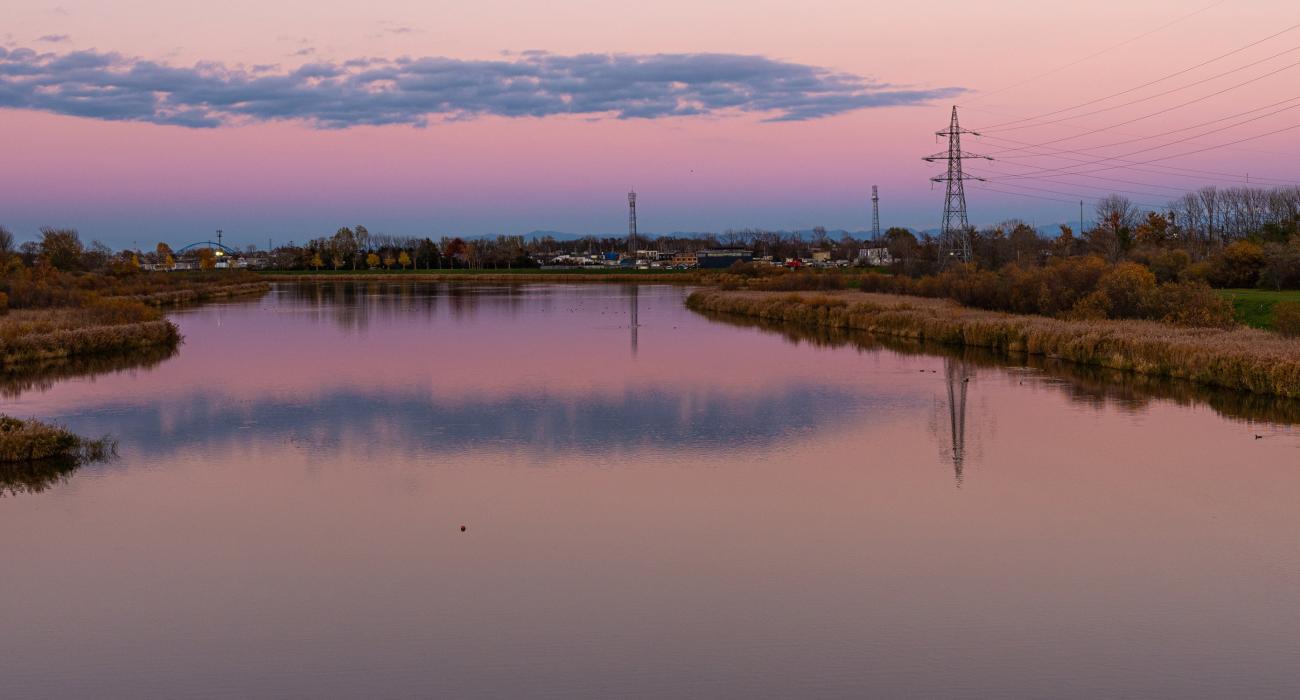
Citizen Suits & Environmental Activism
Based on experience spanning government and private practice, our environmental lawyers have recognized an important shift over the last decade impacting businesses.
While primary environmental enforcement authority remains in the hands of federal and state environmental regulatory agencies, non-governmental organizations (NGOs) and creative private citizens are increasingly organizing coordinated and agile challenges. Compared to the government, these citizens groups typically have different agendas – their goal can be as narrow as changing how a single plant operates or as broad as getting the world “beyond coal” or “beyond natural gas.”
Gone are the simple NGO suits filed in protest. Well-funded and well-organized, NGOs now often drive enforcement of major environmental statutes using sophisticated, time-intensive strategies involving the courts, regulatory agencies, local government, and the media to advance issue-driven agendas.
Understanding the NGOs’ strategies allows us to proactively counsel clients before they face a citizen suit or NGO-led challenge:
- We counsel clients on best practices involving the sophisticated online tools created by government regulators to make industry-reported information available to NGOs and the public.
- We stay ahead of available defenses against information gathered by handheld emissions monitoring devices used by citizens to collect data from specific sites.
- We work with clients to address environmental justice initiatives—just as civil rights groups are declaring energy and climate change as civil rights issues, groups are demanding that industry address disproportionate environmental impacts to low-income and minority communities, particularly in permitting decisions.
We have been advising clients in this area for decades. Our knowledge of the underlying regulatory schemes and the possible twists, turns, and solutions informs every strategy we develop. As the NGOs’ tactics have evolved, so too have our legal strategies.
Experience
Keeping Clients Out of Court
- An NGO notified our client about its intent to file a federal court action alleging the manufacturer failed to secure a federal Clean Water Act (CWA) permit required for its operations. We worked swiftly with regulators to secure a CWA permit before action was ever filed.
Defending Against Dishonest Plaintiff Tactics
- An individual who knowingly purchased former manufactured gas plant property brought a Resource Conservation and Recovery Act (RCRA) claim against a utility client. A claim was filed after months of agency negotiations, during which our client sought to investigate and address any necessary risks posed by possible contamination. Other sites targeted by the same plaintiff agreed to financial settlements that included windfalls to the plaintiff. We secured dismissal of litigation after arguing the owner had blocked access to the site and obstructed the clean-up and attempted to reap financial gains. Our extensive discovery uncovered facts demonstrating the plaintiff’s objective was to extract a large financial settlement as opposed to remediation.
Negotiating Relief
- Several environmental groups opposed a client’s request for regulatory relief from the state’s environmental administrative board. The relief was necessary to prevent the shuttering of our client’s plant. We developed a strategy to ensure the board fully understood the impact the request’s denial would have on workers, the state, the region, local schools, and government and community programs. In addition to developing the legal case for the relief and representing the client during the very contentious proceeding, we helped coordinate the presentation of comments, both written and at the hearing, from all interested parties including elected officials, unions, employees, and community groups. The relief was granted.
- A client asked a state administrative board for continued relief from temperature water quality standards applicable to a lake created to cool the company’s discharges. In an attempt to get the client’s request denied, an environmental group provided oral and written public comments to the board. We negotiated the requested relief, and the company agreed to conduct future lake studies. We worked with the state natural resource agency on an agreement to monitor the lake and its fisheries. With that agreement, we successfully defended against opposition of our client’s request for relief, thus avoiding the costly and unnecessary installation of cooling equipment.
Understanding the NGO Playbook
- The Sierra Club filed an action in their campaign against coal power, alleging a Midwestern utility and industrial consortium secured the wrong air permit to act on their $1 billion grant to retrofit a former coal-fired power plant using carbon-capture sequestration (CCS) technology. We secured dismissal of action from federal court on the grounds that the required permit was a question of state law. When the action was re-filed at the state level, we secured another dismissal on the grounds that the original state-issued permit was appropriate.
- An NGO filed actions in federal and state court and before county zoning boards alleging that our client’s construction of a landfill using the different technology required by new federal regulations to manage coal ash was unlawful. Working with co-counsel, we coordinated the utility’s defense, resulting in either winning the challenges or having them dismissed.
Responding to Environmental Justice Initiatives
- In 2016, the U.S. Commission on Civil Rights focused its enforcement report on the environmental justice impacts of coal ash and hydraulic fracturing, investigating whether the EPA protects low-income and minority communities from environmental quality issues. We tracked a state advisory committee’s proceedings while it investigated coal ash and helped our client better position itself to respond to environmental justice initiatives.
Keeping Projects On Time
- We successfully represented our client in eight judicial and administrative appeals when an NGO and multiple landowners sought to undermine our CWA 401 Certification and Federal Energy Regulatory Commission (FERC) approval to a project.
- We are defending the issuance of a National Pollutant Discharge Elimination System (NPDES) permit for a coal-fired electric power plant against an NGO challenge seeking to compel the installation of a costly cooling tower.
- We successfully defended an NPDES permit appeal by an NGO which sought to require an electric utility to effectively cease discharges of mercury-containing wastewater.
- We helped our client obtain a permit to construct the first waste wood biomass facility in the state. Our strategy included passing legislation that recognized waste wood as fuel, developing the state’s first waste wood fuel protocol, and defending the client at a contentious public hearing on the permit — all to secure the permit.
- We helped our client obtain a permit to modify its coal-fired power plant after an NGO threatened to appeal the permit once issued thereby staying its effectiveness. In exchange for dropping its opposition, the NGO proposed an agreement that would require our client to take additional actions not required by the regulations or the environmental regulator. Instead of our client agreeing to the deal, we developed a strategy resulting in the issuance of a type of permit that does not allow for third-party challenges.
Leveraging Litigation and Political Pressure
- An NGO and a local community group tried to convince both the state to recommend and USEPA to designate the area around our client’s plant as non-attainment for the 1-hour Sulfur Dioxide National Ambient Air Quality Standards (SO2 NAAQS). Such designation would require our client to install unnecessary and costly pollution control equipment. We focused on passing legislation that required the state to make its attainment recommendation based upon all relevant data, including our client’s monitored data showing the area was attaining the NAAQS, instead of solely relying on computer modeling. We devised a strategy to support the state’s recommendation and convince the EPA to uphold the state decision. We developed comprehensive comments for the public record and conducted extensive outreach. The EPA adopted the state’s recommendation, and the area was not designated as non-attainment. We are currently defending an NGO’s challenge of EPA’s decision.
Using Government Data Effectively
- A steel mill was getting bad press around emissions data reported in a federal database. We drafted appropriate messaging for the client to respond to media and elected officials and developed a way to report future emissions data that more accurately reflect true operations at the facility.
Awards & Honors
- Chambers USA
- Energy & Natural Resource, Illinois (2012-2021)
- Environment, Illinois (2012-2021)
- Energy: Electricity (Transactional), Nationwide (2021)
- U.S. News – Best Lawyers® “Best Law Firms” – National Tier 1
- Litigation – Environmental (2012-2015 and 2019-2022)
- Energy Law (2013-2022)
- U.S. News – Best Lawyers® “Best Law Firms” – Metropolitan Tier 1
- Energy Law, Chicago (2013-2022)
- Environmental Law, Chicago (2012-2022)
- Energy Law, Washington, D.C. (2014-2021)
- Litigation – Environmental, Chicago (2012-2022)
Key Contacts
- Related Practices
- Related Industries


